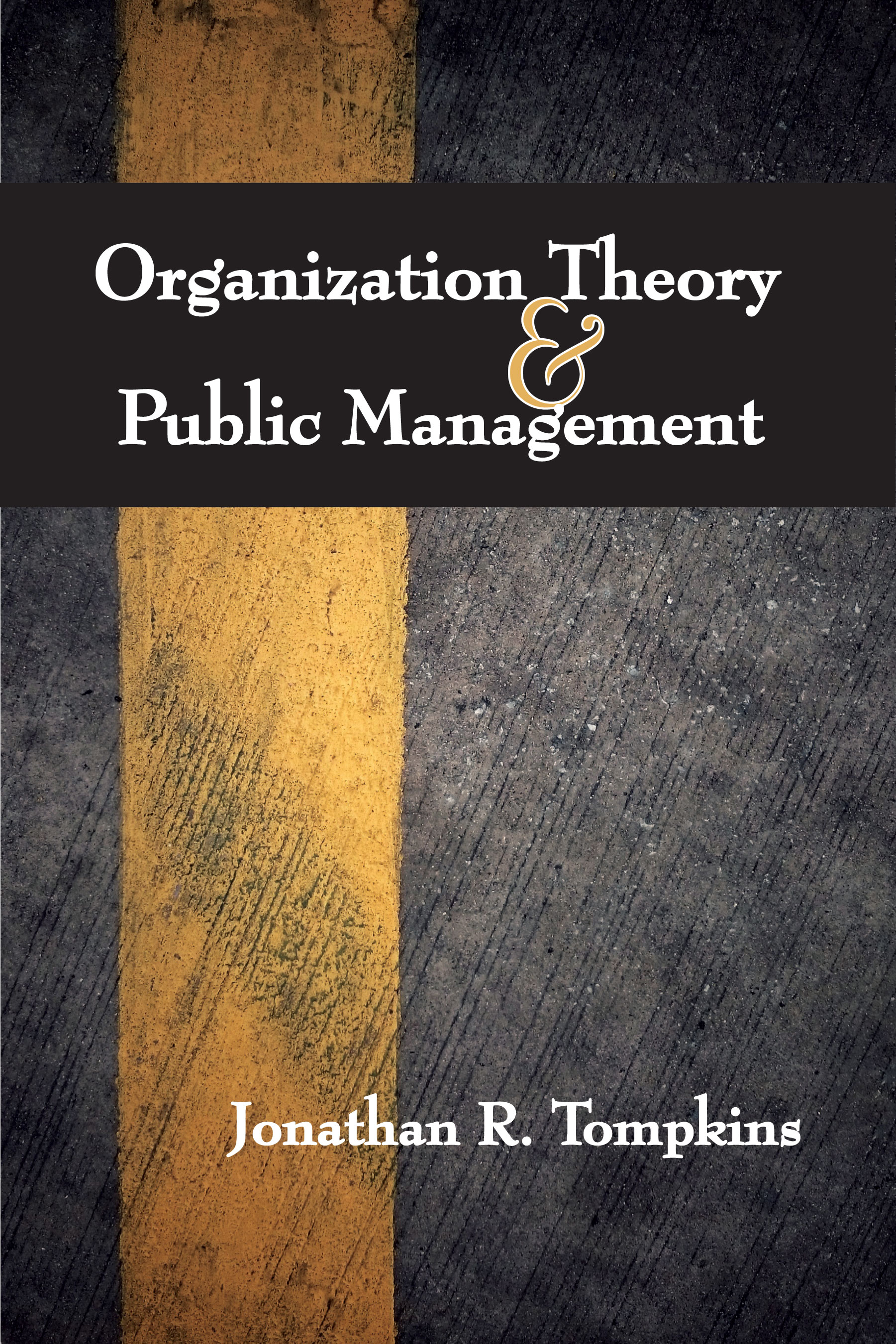
416 pages, $49.95 list
1-4786-5149-0
978-1-4786-5149-9
© 2005
paperback
eBook availability
Similar Titles
Organization Theory and Public Management
Organization Theory and Public Management is written for current and future public managers. Understanding organization theory helps managers at all levels define program objectives, overcome constraints, and accomplish mandated purposes. Armed with theoretical and conceptual knowledge, managers can better identify the factors that affect organizational performance, determine how these factors interrelate, and decide how best to resolve problems and attain goals. Familiarity with organization theory can facilitate fresh ways to view organizational challenges and discover new paths for pursuing change. Organization theory, supported by intuition and common sense, can be a powerful guide to action.
The book approaches each organization theory school of thought on its own terms, drawing out its implications for public management as objectively as possible. Chapter 1 introduces organization theory as a field of study, chapter 2 establishes the unique context of public management, and chapter 3 presents three analytical frameworks for assessing the theories of organization covered in the twelve chapters that follow.
The book approaches each organization theory school of thought on its own terms, drawing out its implications for public management as objectively as possible. Chapter 1 introduces organization theory as a field of study, chapter 2 establishes the unique context of public management, and chapter 3 presents three analytical frameworks for assessing the theories of organization covered in the twelve chapters that follow.
Reactions
"Excellent overview of organizational theory and behavior with a rational approach to evaluating each school of thought." Robin Bittick, Sam Houston State University
1. An Introduction to Organization Theory
2. The Distinctive Context of Public Management
3. Management Practice and Organizational Performance
4. Max Weber's Theory of Bureaucracy
5. Scientific Management Theory: Frederick W. Taylor
6. Administrative Management Theory: Fayol, Mooney, and Gulick
7. Pre-Human Relations Theory: Mary Parker Follett
8. Human Relations Theory: Elton Mayo and Fritz Roethlisberger
9. The Natural Systems Perspective: Chester I. Barnard
10. Structural-Functional Theory: Robert Merton
11. The Open Systems Perspective: Sociotechnical and Structural Contingency Theory
12. Participative Management Theory: Kurt Lewin and Rensis Likert
13. Human Resources Theory: Douglas McGregor and Chris Argyris
14. Quality Management Theory: W. Edwards Deming and Joseph Juran
15. The Organizational Culture Perspective and Symbolic Management Theory
16. Excellence in Government
2. The Distinctive Context of Public Management
3. Management Practice and Organizational Performance
4. Max Weber's Theory of Bureaucracy
5. Scientific Management Theory: Frederick W. Taylor
6. Administrative Management Theory: Fayol, Mooney, and Gulick
7. Pre-Human Relations Theory: Mary Parker Follett
8. Human Relations Theory: Elton Mayo and Fritz Roethlisberger
9. The Natural Systems Perspective: Chester I. Barnard
10. Structural-Functional Theory: Robert Merton
11. The Open Systems Perspective: Sociotechnical and Structural Contingency Theory
12. Participative Management Theory: Kurt Lewin and Rensis Likert
13. Human Resources Theory: Douglas McGregor and Chris Argyris
14. Quality Management Theory: W. Edwards Deming and Joseph Juran
15. The Organizational Culture Perspective and Symbolic Management Theory
16. Excellence in Government